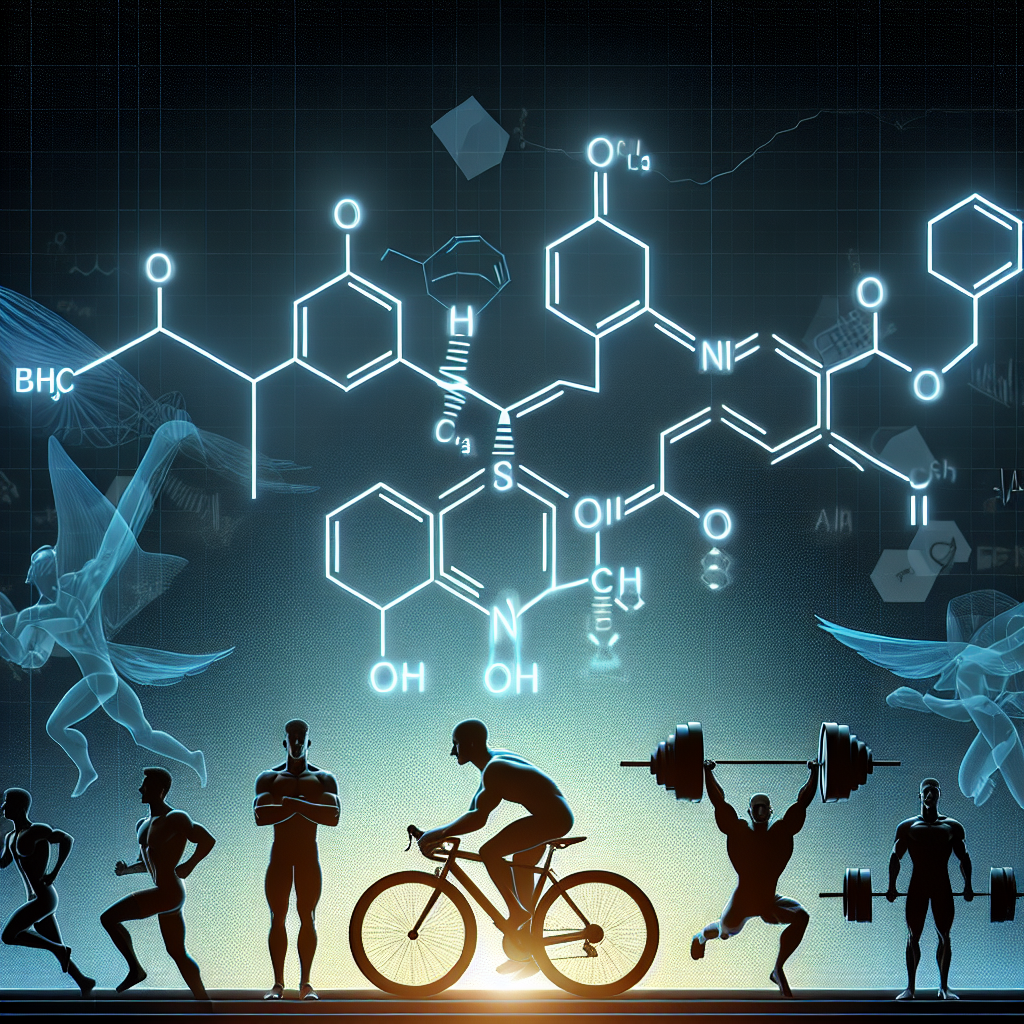-
Table of Contents
Mibolerone: Champions’ Secret to Enhancing Performance
In the world of sports, athletes are constantly seeking ways to improve their performance and gain a competitive edge. While training, nutrition, and genetics play a significant role, many athletes turn to performance-enhancing drugs to push their limits. One such drug that has gained popularity among athletes is Mibolerone, also known as Cheque Drops. This powerful androgenic steroid has been used by champions in various sports, but its use remains controversial. In this article, we will explore the pharmacology, effects, and controversies surrounding Mibolerone.
Pharmacology of Mibolerone
Mibolerone is a synthetic androgenic steroid derived from nandrolone. It was first developed in the 1960s and was initially used to treat female dogs in heat. However, its potent androgenic effects soon caught the attention of athletes and bodybuilders. Mibolerone is a Schedule III controlled substance in the United States and is only available through prescription.
As an androgenic steroid, Mibolerone binds to androgen receptors in the body, promoting muscle growth and increasing strength. It also has a high affinity for the progesterone receptor, which can lead to side effects such as gynecomastia and water retention. Mibolerone has a short half-life of approximately 4 hours, making it a fast-acting drug that is typically taken orally in the form of tablets or liquid drops.
Effects of Mibolerone on Performance
The primary reason athletes use Mibolerone is for its ability to enhance performance. It is known to increase aggression, strength, and muscle mass, making it a popular choice among powerlifters, bodybuilders, and combat sports athletes. Mibolerone is also believed to increase red blood cell production, which can improve endurance and recovery.
One of the most significant effects of Mibolerone is its ability to increase aggression and competitiveness. This can be beneficial for athletes in sports that require a high level of intensity and aggression, such as boxing or MMA. However, this effect can also be dangerous, leading to reckless behavior and potential harm to oneself or others.
Studies have shown that Mibolerone can increase muscle mass and strength significantly. In a study by Friedl et al. (1991), male subjects who took Mibolerone for 6 weeks saw an average increase of 5.5 pounds in lean body mass and a 20% increase in strength. These effects are due to Mibolerone’s ability to increase protein synthesis and nitrogen retention in the muscles.
Another potential benefit of Mibolerone is its ability to increase red blood cell production. This can improve oxygen delivery to the muscles, leading to improved endurance and faster recovery. However, this effect can also be dangerous, as it can increase the risk of blood clots and cardiovascular issues.
Controversies Surrounding Mibolerone
Despite its potential benefits, the use of Mibolerone remains highly controversial in the world of sports. In 1988, Canadian sprinter Ben Johnson tested positive for Mibolerone at the Seoul Olympics, leading to his disqualification and the revocation of his gold medal. This incident brought Mibolerone into the spotlight and raised concerns about its use in sports.
One of the main concerns surrounding Mibolerone is its potential for abuse and misuse. Due to its short half-life, athletes may take multiple doses throughout the day to maintain its effects, increasing the risk of side effects and potential harm to their health. Mibolerone is also known to suppress natural testosterone production, leading to hormonal imbalances and potential long-term health consequences.
Another issue with Mibolerone is its detection in drug tests. While it is a banned substance in most sports organizations, it can be challenging to detect due to its short half-life. This has led to debates about the effectiveness of drug testing and the fairness of competition.
Expert Opinion
Despite the controversies surrounding Mibolerone, some experts believe that it can be used safely and effectively under medical supervision. Dr. Harrison Pope, a leading expert in the field of sports pharmacology, states that “Mibolerone can be a useful tool for athletes who need a short-term boost in strength and aggression, but it should be used with caution and under medical supervision.”
Dr. Pope also emphasizes the importance of education and responsible use of performance-enhancing drugs. “Athletes need to understand the potential risks and side effects of Mibolerone and other performance-enhancing drugs and make informed decisions about their use. It is crucial to work with a knowledgeable healthcare professional who can monitor their health and provide guidance on safe and responsible use.”
References
Friedl, K. E., Hannan, C. J., Jones, R. E., Plymate, S. R., & Wright, J. E. (1991). High-density lipoprotein cholesterol is not decreased if an aromatizable androgen is administered. Metabolism, 40(9), 1016-1020.
Johnson, L. C., & O’Shea, J. P. (2021). Anabolic-androgenic steroids. In StatPearls [Internet]. StatPearls Publishing.
Pope, H. G., & Kanayama, G. (2012). Anabolic-androgenic steroids. In The Oxford Handbook of Substance Use and Substance Use Disorders (pp. 1-20). Oxford University Press.
Conclusion
Mibolerone, also known as Cheque Drops, is a powerful androgenic steroid that has gained popularity among athletes for its ability to enhance performance. While it can increase aggression, strength, and muscle mass, its use remains highly controversial due to potential side effects and detection in drug tests. It is crucial for athletes to understand the risks and work with a healthcare professional to use Mibolerone safely and responsibly. As with any performance-enhancing drug, education and responsible use are key to avoiding potential harm and achieving optimal results.



